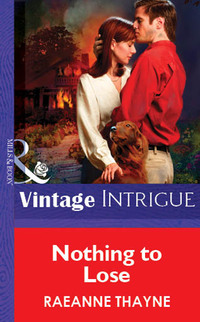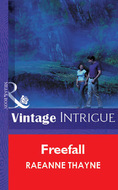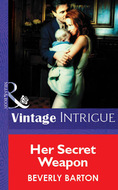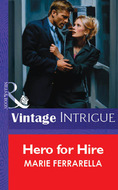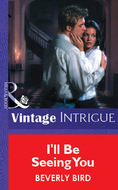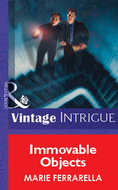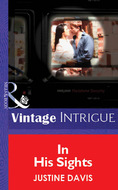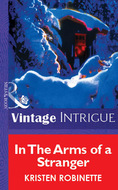Książki nie można pobrać jako pliku, ale można ją czytać w naszej aplikacji lub online na stronie.
Czytaj książkę: «Nothing To Lose»
“Your brother is a grown man. If he wants to talk to me, I don’t see how you can do anything about it.”
Taylor’s midnight eyes flashed fire. “He’s fighting for his life, Wyatt. The last thing he needs is for you to write one of your salacious books about the case and go stirring everybody up all over again. He should be pouring all his energies into his appeal, not wasting his time talking to you.”
“I’m sorry you’re not happy about it. But as long as he wants to see me, I’ll continue going.”
“And nothing I can say will change your mind?”
He shook his head. “I’m sorry.”
She gazed at him for a long moment, that sweetly curved mouth tight and angry; then she turned and stalked away, leaving him with his head pounding and unwilling guilt gnawing at his insides.
Nothing to Lose
RaeAnne Thayne

RAEANNE THAYNE
lives in a graceful old Victorian nestled in the rugged mountains of northern Utah, along with her husband and two young children. Her books have won numerous honors, including several readers’ choice awards and a RITA® Award nomination by the Romance Writers of America. RaeAnne loves to hear from readers. She can be reached through her Web site at www.raeannethayne.com or at P.O. Box 6682, North Logan, UT 84341.
Contents
Chapter 1
Chapter 2
Chapter 3
Chapter 4
Chapter 5
Chapter 6
Chapter 7
Chapter 8
Chapter 9
Chapter 10
Chapter 11
Chapter 12
Chapter 13
Chapter 14
Chapter 15
Chapter 16
Chapter 17
Epilogue
Chapter 1
“A family shattered, innocence destroyed. The tragic death of Cassie Nyland reminds us once more that the monsters we should fear most are those that lurk inside ourselves.”
Enthusiastic applause burst through the bookstore just off the University of Utah campus when Wyatt McKinnon closed the pages of his latest book. He offered the audience the smile the writer for Vanity Fair had called “dangerously enigmatic” at the same time he fought the urge to rub at the familiar tension headache pounding holes in his temples and his concentration.
He hated speaking in public. After ten book tours, he probably should be used to it. But no matter how many readings he gave like this one—how many speeches, how many television interviews—he couldn’t shake the feeling that it was all a mistake, that eventually everyone would figure out he was just a hick cowboy from Utah who didn’t deserve any of the wide acclaim that had found him after the publication of his first book, Shadow of Fear.
Only neurotic-writer blues, he told himself again and straightened his spine to face the crowd of university students suddenly clustering around him. They all looked so young, pathetically eager, and he had the lowering thought that they were all barely in elementary school when he finished college himself a decade earlier.
“That was so wonderful, Mr. McKinnon.” A perky brunette with a tight gymnast’s body and a brilliant smile that must have set her parents back a small fortune in orthodonture was the first in line. “Your books are all so scary. I can’t pick one up unless my roommate is home. They’re scary but so gripping, you know?”
“I’m pleased you think so,” he responded automatically.
“Oh, I do. Will you sign Blood Feud for me?” She thrust a copy of a book he was currently promoting. “To Brittanee, with two E’s.”
With a dutiful smile, he signed the book, then spent the next hour doing his best to keep that smile firmly in place while his headache cranked up a couple of dozen notches and the muscles in his hand cramped from all the books he signed.
Finally the crowd dispersed, until only a few people remained. One was Paul Cambridge, an old college friend whose family owned the bookstore. He was talking to one of the salesclerks and held up a finger to let Wyatt know he was almost ready to take him out for the seafood enchiladas at Cafe Pierpont as he had promised.
Wyatt nodded and rose to stretch, then caught sight of a woman he had noticed briefly earlier. She hadn’t moved from the back row of chairs. Now that he had a moment to focus on her more closely, he thought she looked vaguely familiar. He narrowed his gaze. It wasn’t until she rose and approached him that all the pieces clicked together.
“Taylor Bradshaw, right?” he said quickly as she came to stand before him.
A flare of some unreadable emotion registered briefly in eyes a deep and lovely blue, but she quickly veiled it. “Yes.”
The last time he had seen her was during the sentencing phase of her brother’s murder trial eighteen months earlier. When Hunter Bradshaw had been sentenced to death by lethal injection for the murder of his girlfriend, her mother and her unborn fetus, the former Salt Lake City police detective hadn’t so much as blinked in reaction.
Bradshaw’s sister had been a different story. When Judge Leonis had pronounced the grim sentence, every trace of color had leached from the elegant, fragile features of Taylor Bradshaw and she had collapsed to the floor of the courtroom.
That small scene had been just one more in a string of dramatic developments in the case that had captivated the public’s interest. Successful, popular television personality murdered by the father of her unborn baby. It was a fascinating case and Wyatt couldn’t wait to finish his research and start writing about it.
He didn’t wonder that he hadn’t immediately recognized Taylor Bradshaw. Except for some shadows lingering in those huge blue eyes, the woman standing in front of him barely resembled the pale, distressed young woman who had haunted the courtroom every day.
She also didn’t look much like the other college students who had attending his reading, in their jeans and T-shirts and slouchy backpacks. Taylor Bradshaw wore tailored slacks and a russet blazer over a crisp white shirt. She carried a leather briefcase and exuded an air of professional competence. Her auburn hair was cut shorter than he remembered it and her face was harder, somehow. Determined.
She looked…driven. He couldn’t come up with another word to describe her. He knew she had been in her last year of medical school during the trial and he wondered now if she had returned to finish up. He sincerely hoped for her sake that she had. Just because her brother was living on borrowed time didn’t mean she had to shove her own life into the deep freeze.
“I’m surprised to see you here,” he admitted.
Her gaze was as cool as the October night outside the bookstore. “I’m sure you are.”
Though both of them had attended the monthlong trial every day, they had spoken only once. It hadn’t been a friendly conversation, Wyatt remembered with an internal grimace. During a recess in the trial, he had slipped to the coffee shop across the street from the courthouse and discovered Taylor sitting alone in a quiet corner booth.
He remembered she had some kind of thick medical textbook propped up in front of her, but over the top of it he had just been able to see her eyes. The utter lack of hope in them still haunted him.
That despair had changed to bitter anger when he approached her booth, driven by some insane desire to try to comfort her.
“Looking for a scoop, Mr. McKinnon?” she had asked, her tone biting.
“No. Just a lunch companion. I hate eating alone.” But even his friendliest smile didn’t thaw the chill in her eyes by a single degree.
She snapped shut her textbook and slid out of the booth. “Too bad. I’m done here.”
The full plate of food in front of her gave the lie to her words and made him annoyed at his own foolishness. She didn’t want his comfort. What had he expected, that she would be thrilled to have his company?
“Come on, don’t run away. You have to eat. I won’t bother you, I promise.”
“I’ve suddenly lost my appetite. Something about yellow journalism does that to me.”
The denunciation had stung, he had to admit. He took pride in his work, in presenting the blunt truth, no matter how unpalatable it might be. Through his career he had received thanks not only from the families of the victims he wrote about but also the families of their killers for helping them understand what had gone so horribly wrong.
Before he could respond to Taylor Bradshaw’s derisive comments, she had stalked out of the diner, and she had studiously avoided him for the remaining days of the trial.
Apparently the intervening eighteen months hadn’t softened her attitude toward him at all. She still looked at him like she thought he was approximately as appealing as a cow with the slobbers.
“Hunter told me you’ve been going to the Point of the Mountain to see him.”
“A few times, yes.”
“He told me he’s cooperating with you from prison on the book you’re writing about his case.”
“We’ve had a few conversations, mostly about his relationship with Dru Ferrin. How they met, how long they dated, that sort of thing.”
“I don’t want you going out there again.”
Wyatt studied the muscle flexing along her jawline and the hot color climbing her cheekbones. He wasn’t the kind of man to go looking for fights but he wouldn’t back down when one found him, either. “Your brother is a grown man, Ms. Bradshaw,” he murmured. “If he wants to talk to me, I don’t see how you can do anything about it.”
Anger snapped to life in her eyes. “I can ask you to have a little human decency, if you even know what that is. My brother is living in hell. The last thing he needs is for you to write one of your salacious books about the case and go stirring everybody up all over again.”
In the court of public opinion, Hunter Bradshaw had been guilty of the Ferrin murders before he ever walked into that courtroom. In conservative Utah, where Dru Ferrin had been a pretty, popular television personality, and with the case involving the violent deaths of pregnant women or their terminally ill mothers, the man hadn’t stood a chance of being acquitted.
“I’m not trying to stir everybody up again,” he said, deciding to ignore that whole “salacious” bit. “All I want to do is explore a little more deeply why it happened.”
“To know why Dru and her mother were killed, don’t you think you have to know who really did it first? It certainly wasn’t my brother.”
“A jury of his peers said he did.”
“That jury was wrong! And if you write a book saying he killed anyone, all you will be doing is furthering their injustice.”
“Your faith in your brother is admirable, Ms. Bradshaw.”
“Admirable but misplaced. That’s what you’re thinking, isn’t it?”
That was exactly what he’d been thinking but he didn’t have the heart to voice his opinion. “He was convicted,” Wyatt pointed out gently. “Hunter is on death row. In the eyes of the courts and the world, he’s guilty of killing both women and Dru’s unborn child.”
“I don’t care what the world says. I know he didn’t do it! My brother is facing death for something he didn’t do. What could be worse?”
Despite his own knowledge of the case and the overwhelming avalanche of evidence against Bradshaw, Wyatt couldn’t help being stirred by the force of her convictions.
Taylor went on. “You’ve met him. Can you honestly tell me you think he’s capable of this crime?”
That was one of the things that bothered him most about this case, Wyatt had to admit. Bradshaw was a tough man to peg. He had a reputation for being a smart, dedicated cop. Stubborn enough to earn his share of enemies on the force, but passionate about the job and not at all the sort who would fly into a rage and kill two women.
During their three prison interviews, he had seen none of that passion the prosecution had alleged. Bradshaw had been courteous but cool, showing no emotion whatsoever.
Wyatt wasn’t being arrogant to acknowledge that one of the reasons his books had been so well-received was his ability to climb inside the minds of the killers he wrote about. As uncomfortable as he found such places, the perspective always gave a rich depth to his writing, a gritty verity he worked hard to attain. But Hunter Bradshaw wasn’t letting him anywhere near his mind. The man he met was as remote and cool as the Yukon.
“Who knows what any of us is capable of with the right provocation?” he responded.
Taylor Bradshaw’s midnight-blue eyes flashed fire. “I don’t know you. I don’t know what you’re capable of. But I do know my brother and I know he would never lift a finger to hurt any woman, especially not the woman he thought was carrying his child.”
Wyatt thought again of Dru Ferrin, the girl he’d known in grade school, pretty and sassy and smart-mouthed. He’d been lost and terribly lonely when he returned to Utah with his mother after the divorce. Missing his dad and Gage like crazy, mourning Charlotte, traumatized by the purgatory they had all been through.
The other children hadn’t known how to talk to him—what did a nine-year-old say to a kid who was the only witness to his little sister’s kidnapping?—but Dru had always been kind to him.
For that alone, he wanted to write her story, so he could remember that girl willing to sit by him on the school bus when everybody else treated him like he had head lice.
“Leave Hunter alone.” A pleading note crept into Taylor’s voice and her hand tightened on her attaché. “He’s fighting for his life. He should be pouring all his energies into his appeal, not wasting his time talking to you.”
“I’m sorry you’re not happy about it. But your brother seems to want to tell his side of the story. As long as he wants to talk to me, I’ll continue going down to the Point of the Mountain.”
“And nothing I say will change your mind?”
He shook his head. “I’m sorry,” he said again.
She gazed at him for a long moment, that sweetly curved mouth tight and angry, then she turned and stalked away, leaving him with his head pounding and unwilling guilt gnawing at his insides.
Taylor was greeted by two things a half hour later when she let herself into her little house in the Avenues—the rich smell of something Italian and spicy wafting from the kitchen, and a huge furry shape that rushed her the moment she walked inside.
Belle’s eager welcome went a long way to helping Taylor shake the anger and frustration that lingered from her encounter with Wyatt McKinnon.
She dropped her case and gave the dog the obligatory attention, ignoring the hair Belle eagerly deposited. “Yeah, I’m happy to see you too, you crazy dog, even if my jacket will never be the same. How was your day, sweetheart? Anything exciting happen?”
“Not much. I worked a double shift at the hospital, then got hit on by the kid who bagged my groceries.”
Taylor turned her attention from the Irish setter she had inherited from Hunter after his arrest to her roommate and best friend standing in the doorway. “Big surprise.” She grinned. “You get hit on by everyone.”
“Not true. Only sixteen-year-old bag boys and sixty-year-old anatomy professors. Nobody date-able.” Kate’s rueful grimace did nothing to hide her model-beautiful features.
At the wry reference, Taylor had to laugh as she remembered Andrew McLean, the anatomy professor in question who had been notorious for propositioning all of his female medical students. Even Taylor had been on the receiving end of one of Randy Andy’s absymal pickup lines.
It seemed like another lifetime ago when she met Kate Spencer on the first day of McLean’s anatomy class, when they’d been paired up as lab partners. Both of them had been first-year medical students, overwhelmed and a little lost by the new world they’d been thrust into.
Recognizing kindred spirits, they had become immediate friends and study partners. Both of them had the same fierce dedication toward medical school, with little interest in anything but succeeding and becoming physicians.
During their second year of med school, Taylor’s father died of a massive heart attack after walking out of the courtroom where he presided with the same iron fist and cold resolve he had shown to his children.
After his death, she purchased this house near the university with part of her inheritance. Though she could have gotten by financially without a roommate, she discovered after a few months that she didn’t like living alone. Kate had been the logical choice.
They had shared so much together, Taylor thought now as she studied her roommate. Hopes and dreams and late-night cram sessions and a memorable cross-country trip one spring break to visit Kate’s foster parents in Florida.
They would have graduated together the previous year if Hunter’s arrest hadn’t plowed like a freight train through Taylor’s educational plans. While Kate had finished up and was now a second-year resident at University Hospital, Taylor’s life had taken a drastic turn.
She had withdrawn from her last semester of classes to attend the trial. After Hunter’s conviction, she had dropped out of medical school altogether. Now, instead of anatomy and physiology, she was immersed in torts and civil procedure.
She shook off the depression that suddenly settled on her shoulders like a weighted cloak at the reminder of the mounds of homework awaiting her before she could sleep.
“So how was the lecture?” Kate asked. “Did you get a chance to talk to the evil Wyatt McKinnon?”
“I spoke with him,” she said grimly.
“And?”
“He’s not budging.”
“Did you really expect him to drop the whole project just because you asked him to? He was there every day of the trial too.”
She sighed, slipping off her shoes and hanging her blazer in the closet off the entry. “Not really. Still, it was worth a shot. I guess I just wanted to make sure he knows how strongly I object to the idea of him making money off the hell Hunter is going through.”
“I’m not sure the money is all that important to him. He’s had ten books at the top of the bestseller lists. I think if Wyatt McKinnon never wrote another word, he would still be worth millions.”
Rich and successful and gorgeous. The man had everything. Her mouth tightened again. Why did he affect her so strongly? She should despise him for what he was doing to Hunter. She did, she assured herself.
So why had she sat through his reading as captivated by his words as every other brainless coed in that bookstore? Something about Wyatt McKinnon’s lean, rangy build and his tanned features and the intensity in his sage-green eyes seemed to reach right inside her and tug out feelings she had never imagined lurked inside her.
She could never tell Kate that. If her roommate ever figured out she was attracted to the blasted man, Taylor would never hear the end of it.
By unspoken agreement, the two women headed for the kitchen, Belle padding along behind them. Kate returned to the stove and stirred a tomato sauce bubbling there while Taylor set out plates and silverware.
“I read that article about him in Vanity Fair a few months ago,” Kate went on. “It might have been hype, but I got the impression he’s not in it for the money.”
“I’m sure he doesn’t turn it away when his publisher sends him all those big fat royalty checks.”
“Maybe not, but I think there’s more to it than that. Hang on a minute.”
Kate set the spoon down with a clatter and suddenly dashed out of the kitchen toward her bedroom, Belle following on her heels. A moment later she rushed back and thrust a magazine at Taylor.
Gazing back at her out of those vivid green eyes that gleamed behind wire-rimmed glasses was none other than Wyatt McKinnon, wearing cowboy boots and a denim jacket and looking as if he had just climbed off the back of a horse.
“I thought I still had this—”
Though Taylor wasn’t sure how Kate could look at anything but that compelling picture, her roommate scanned the article.
“Here is that quote I was looking for, about why he writes what he does.”
She pulled the magazine away from Taylor and read out loud. “‘I write for the victims and the victims’ loved ones. When a family loses someone through a violent crime or an unsolved disappearance, their lives are changed forever. The world is never again as shiny and bright with possibilities. Though it doesn’t take away any of their pain, victims’ families deserve to know the truth about what happened and, more importantly, to know their lives won’t be forgotten.’”
“He sounds as if he knows. I wonder if he’s lost someone.” Taylor studied the picture, looking for shadows behind that enigmatic smile. She couldn’t tell anything from the glossy photograph.
“The article doesn’t say anything like that about him, but it’s possible.” Kate returned to the stove to drain the pasta. For a few moments the kitchen was silent except for Belle’s snuffly breathing and the sauce burbling on the stove.
“You know,” Kate said suddenly, “maybe you’ve been going about this the wrong way with McKinnon.”
“How?”
“You want to keep him from interviewing Hunter. But maybe you should be thanking your lucky stars he’s interested in the case.”
Taylor stared at her. “You’re crazy. Hunter doesn’t need more negative publicity. He’s had enough to last a lifetime.”
“What if it’s not negative? McKinnon’s books are extensively researched. He has a reputation for writing genuine, accurate stories, even in cases where the cops messed up. If you show him the evidence you’ve gathered since Hunter’s conviction, he can’t help but see that your brother is innocent.”
“You’re the one who read that quote. He writes for the victims and their families. Not for the accused killers.”
“We both know Hunter is no killer. You just have to convince Wyatt McKinnon. Imagine what it would do for Hunter’s appeal if McKinnon wrote a book questioning whether an innocent man is on death row!”
“He sat through the trial and heard the state’s case. As far as he’s concerned, Hunter killed Dru and her mother and her unborn baby. Just like the rest of the world, I’m sure he thinks Hunter deserves what’s coming to him.”
“You just have to prove that he and the rest of the world are wrong.”
Taylor gave a short laugh. “Sure. And while I’m at it, I’ll solve world hunger and in my spare time maybe I’ll find a cure for cancer.”
“Who else will speak up for Hunter? You and I are just about the only people on the planet who believe he’s innocent. But imagine if he had someone as influential and well-known as Wyatt McKinnon in his corner. He would be bound to win an appeal.”
Kate was right. If she could somehow convince Wyatt to help her prove her brother didn’t murder anyone, it would undoubtedly help Hunter’s appeal. But how could she face him again? Just the idea of another encounter made her stomach hurt worse than the first time she had to answer a question aloud in her miserable contracts-law class.
She could do it, though. She would. Hunter’s life depended on it.
Darmowy fragment się skończył.
